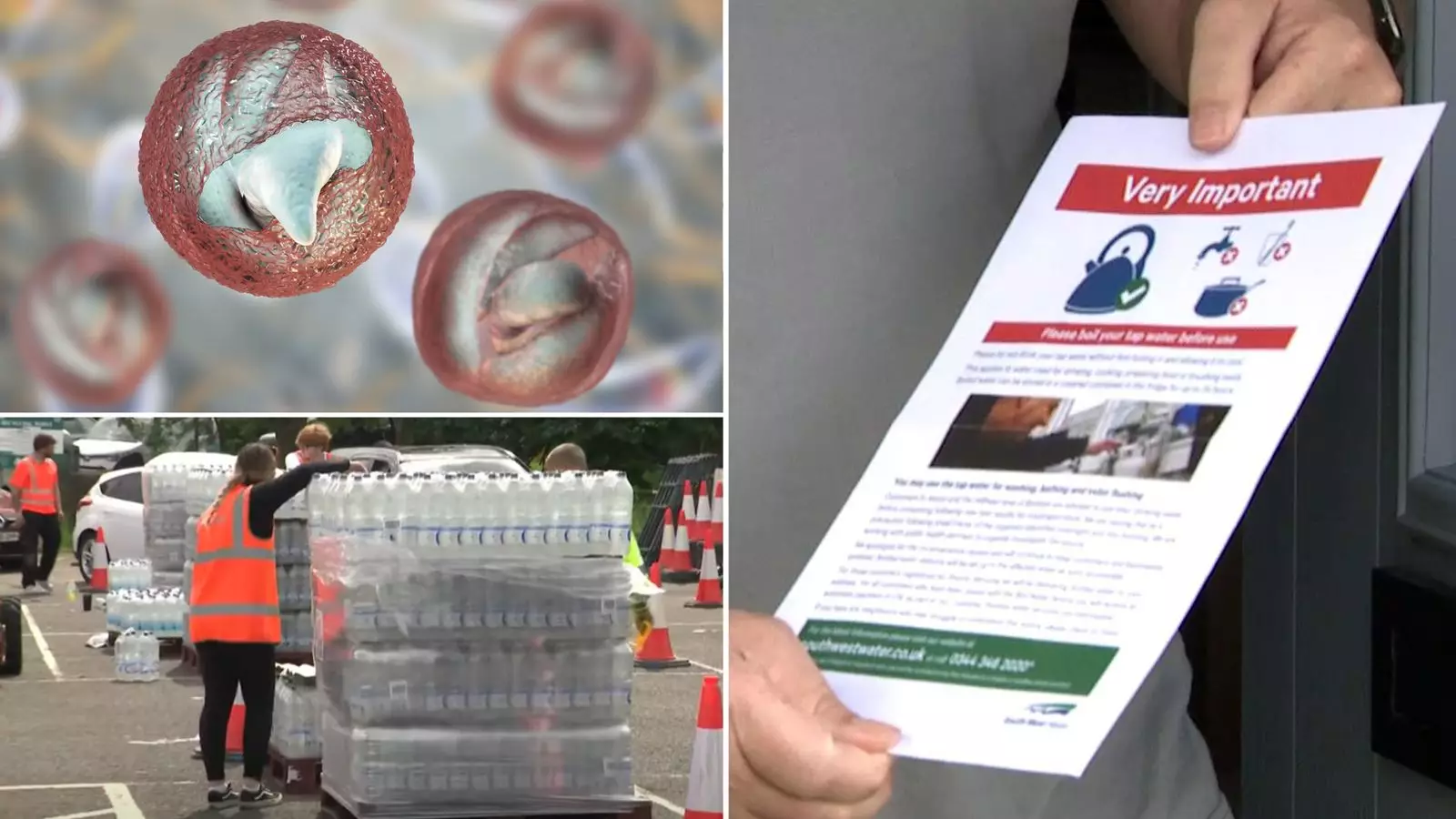In the wake of a cryptosporidium outbreak in the Brixham area of Devon, South West Water has taken urgent action to address the contamination issue. With 46 confirmed cases of cryptosporidiosis reported, approximately 16,000 households have been advised to boil their drinking water to prevent further infection. This waterborne disease, caused by a tiny parasite, can result in symptoms such as vomiting, stomach cramps, and prolonged bouts of watery diarrhea lasting up to two weeks. Due to the delayed onset of symptoms, it is anticipated that more cases will be identified in the coming days.
Root Cause Analysis
It is believed that the cryptosporidium parasite infiltrated the water supply through a damaged pipe located in a field contaminated with animal feces. The discovery of the contaminated water tank at Hillhead reservoir, the source of the outbreak, prompted immediate draining and thorough cleaning to eliminate the parasite. However, the restoration of safe water supplies remains uncertain, as South West Water asserts that the boil water notices will only be lifted once it is absolutely safe to do so.
The local Member of Parliament, Anthony Mangnall, has criticized the water supplier for its delayed response in issuing a safety alert. He highlighted the severity of the situation, stating that “heads are going to roll” over the incident. Mangnall expressed disappointment in the slow actions taken by South West Water, from initially denying involvement to the delayed implementation of boil water notices, resulting in widespread usage of contaminated water and subsequent illnesses among the population.
Political Response and Environmental Concerns
Liberal Democrat leader Sir Ed Davey condemned the government for failing to hold water companies accountable for their negligence. He emphasized the prioritization of profits over environmental and public health concerns, citing multiple instances of sewage releases into rivers and seas. Davey proposed a sewage tax on water companies’ profits to garner immediate financial resources for addressing such environmental issues. He called for stricter regulations and a potential restructuring of the water industry to ensure greater accountability and responsibility in safeguarding public health and the environment.
In response to growing concerns over sewage releases and water contamination, Surfers Against Sewage organized protests and demonstrations at 30 locations, including a “paddle-out” event in Brighton attended by Olympian Dame Kelly Holmes. These grassroots movements aim to raise awareness about water pollution issues and advocate for more stringent measures to prevent future outbreaks and environmental harm.
The cryptosporidium contamination crisis in Brixham serves as a stark reminder of the vulnerabilities in our water supply systems. It underscores the importance of proactive measures, prompt responses to safety threats, and stringent regulations to protect public health and the environment. The incident highlights the need for greater accountability, transparency, and community engagement in ensuring water safety and quality standards are upheld to prevent similar crises in the future.


Leave a Reply